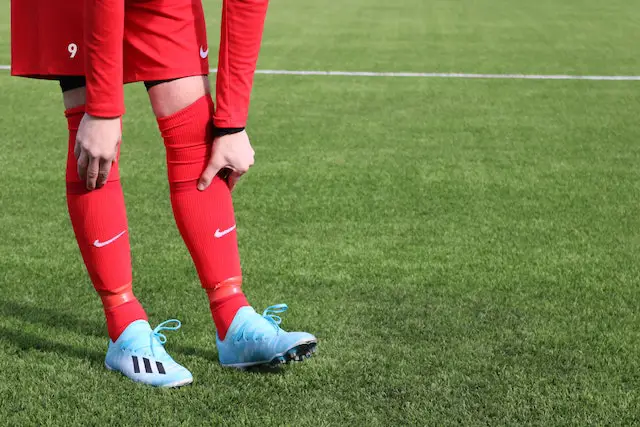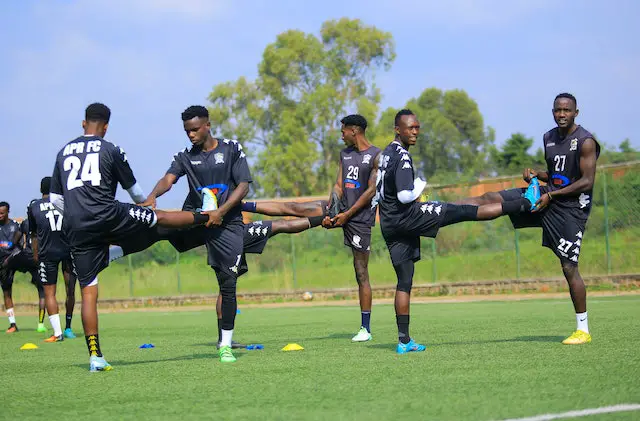In the world of professional sports, the physical well-being of athletes has always been a top priority. However, in recent years, there has been a growing recognition of the importance of addressing the mental health of players as well.
With the pressure and demands of the game, it is crucial for teams to have strategies in place to support their players’ mental well-being.
This article explores the various ways in which teams are managing player mental health, from providing access to mental health professionals to implementing mindfulness and meditation practices.
Importance of Player Mental Health
When it comes to managing player mental health, teams need to prioritize the well-being of their athletes. Mental health plays a crucial role in an athlete’s overall performance and can significantly impact their physical health, relationships, and overall quality of life. By creating a supportive environment, identifying and addressing mental health issues, and providing access to mental health resources, teams can help their players thrive both on and off the field.
Creating a Supportive Environment
One of the first steps teams can take to support player mental health is to create a supportive environment. This involves fostering a culture of empathy, understanding, and acceptance within the team. Coaches and staff should emphasize the importance of mental health and promote open communication. By encouraging players to share their struggles and experiences, teams can create a safe space where athletes feel comfortable seeking help and support.
Identifying and Addressing Mental Health Issues
Identifying and addressing mental health issues is crucial in effectively managing player mental health. Regular check-ins with athletes can help teams stay aware of any potential mental health concerns. These check-ins can take the form of one-on-one meetings with coaches or staff members trained in mental health. By regularly monitoring an athlete’s well-being, teams can identify early warning signs and proactively address any issues that may arise.
Providing Access to Mental Health Resources
Teams must ensure that their players have access to a wide range of mental health resources. This can include providing access to mental health professionals such as psychologists or counselors who specialize in working with athletes. These professionals can offer individualized support and therapy to help athletes navigate mental health challenges. Additionally, teams can offer resources such as hotlines, support groups, and educational materials to further support their players’ mental well-being.
Implementing Mental Health Programs

To effectively manage player mental health, teams should implement comprehensive mental health programs. These programs can be tailored to meet the unique needs of athletes and provide ongoing support and resources.
Hiring Mental Health Professionals
A crucial component of any mental health program is the presence of qualified mental health professionals within the team. By hiring psychologists, counselors, and other mental health experts, teams can ensure that their players receive the specialized care they need. These professionals can offer assessments, therapy sessions, and guidance in developing coping strategies.
Educating Coaches and Staff
Another vital aspect of implementing mental health programs is educating coaches and staff about mental health. Coaches and staff members should receive training on recognizing the signs of mental health issues, responding appropriately, and creating a supportive team environment. By increasing their knowledge and understanding of mental health, coaches and staff can better support their players and navigate sensitive situations.
Implementing Regular Check-ins
Regular check-ins are an essential part of any mental health program. Coaches and staff should schedule regular one-on-one meetings with athletes to discuss their mental well-being. These check-ins provide an opportunity for athletes to open up about any challenges they may be facing and for coaches and staff to offer support and resources as needed. By having consistent communication, teams can create a proactive approach to managing player mental health.

Developing a Team Culture of Support
Building a team culture of support is crucial in promoting player mental health. By fostering open communication, encouraging peer support, and reducing stigma and discrimination, teams can create an environment where athletes feel safe and supported.
Promoting Open Communication
Open communication is key in creating a supportive team culture. Athletes should feel comfortable expressing their thoughts, concerns, and struggles without fear of judgment or negative consequences. Coaches and staff should actively encourage open dialogue and create opportunities for athletes to share their experiences. By promoting open communication, teams can foster a sense of trust and help athletes feel heard and supported.
Encouraging Peer Support
Peer support plays a vital role in promoting player mental health. Athletes spend a significant amount of time with their teammates, and these relationships can provide a valuable support system. Teams can encourage athletes to support one another by fostering a sense of camaraderie, teamwork, and empathy. By creating a culture where teammates look out for each other, teams can help athletes feel supported both on and off the field.
Reducing Stigma and Discrimination
Reducing stigma and discrimination around mental health is essential in creating a supportive team culture. Teams should actively work to eliminate negative stereotypes and promote understanding and empathy. Coaches and staff can educate players about mental health, challenge misconceptions, and encourage respectful and inclusive behavior. By reducing stigma, teams can help players feel comfortable seeking help and support when needed.
Establishing Effective Policies and Procedures

Establishing effective policies and procedures is crucial in managing player mental health. By implementing confidentiality and privacy measures, clear reporting and support systems, and evaluation and improvement processes, teams can ensure that their players’ mental health needs are met.
Confidentiality and Privacy Measures
Confidentiality and privacy are critical when it comes to managing player mental health. Teams should have strict protocols in place to protect the confidentiality of athletes’ mental health information. Coaches, staff, and mental health professionals should be trained in maintaining confidentiality and be aware of the legal and ethical implications of disclosing information without consent. By prioritizing confidentiality, teams can create a safe and trusting environment for their players.
Clear Reporting and Support Systems
Clear reporting and support systems are vital in effectively managing player mental health. Teams should establish clear guidelines and procedures for reporting mental health concerns. Athletes should know who to turn to if they need help and how to access mental health resources. Coaches, staff, and mental health professionals should be readily available to offer support and guidance. By having transparent reporting and support systems, teams can ensure that athletes receive the necessary support in a timely manner.
Evaluation and Improvement Processes
Teams should regularly evaluate and improve their mental health policies and procedures to ensure their effectiveness. By collecting feedback from athletes, coaches, staff, and mental health professionals, teams can identify areas for improvement and make necessary adjustments. Teams should also stay updated on current research and best practices in managing player mental health to continually enhance their programs. By prioritizing evaluation and improvement, teams can provide the best possible support for their players.

Collaborating with External Professionals
Collaborating with external professionals is essential in managing player mental health. By building relationships with mental health experts, utilizing specialist services, and providing comprehensive care, teams can ensure that their players have access to the most effective support.
Building Relationships with Mental Health Experts
teams should establish relationships with mental health experts such as psychologists, counselors, and psychiatrists. These professionals can provide specialized care and support to athletes with more complex mental health needs. By collaborating with external professionals, teams can offer a comprehensive approach to managing player mental health and ensure that athletes receive the most appropriate and effective treatment.
Utilizing Specialist Services
In addition to building relationships with mental health experts, teams should utilize specialist services to support player mental health. This may include partnerships with organizations that specialize in mental health, substance abuse treatment, or other specific areas. By connecting athletes with the appropriate resources, teams can ensure that their mental health needs are met in a comprehensive and tailored manner.
Providing Comprehensive Care
Teams should strive to provide comprehensive care for their players’ mental health. This involves offering a range of services that address different aspects of mental well-being, including therapy, counseling, medication management, and holistic approaches. By providing comprehensive care, teams can support players in achieving optimal mental health and overall well-being.
Promoting Mental Well-being
Promoting mental well-being is key in managing player mental health. By offering mental skills training, incorporating mindfulness and relaxation techniques, and emphasizing work-life balance, teams can help athletes develop and maintain good mental health.
Offering Mental Skills Training
Mental skills training can be highly beneficial for athletes. Teams can provide education and training in areas such as goal setting, visualization, positive self-talk, and stress management. By equipping athletes with these skills, teams can help them manage performance anxiety, enhance focus, and build overall mental resilience.
Incorporating Mindfulness and Relaxation Techniques
Mindfulness and relaxation techniques are valuable tools for promoting mental well-being. Teams can integrate practices such as meditation, deep breathing exercises, and progressive muscle relaxation into their training programs. By incorporating these techniques, athletes can learn to manage stress, improve self-awareness, and enhance their overall mental and emotional balance.

Emphasizing Work-Life Balance
Maintaining a healthy work-life balance is crucial for athlete mental health. Teams should encourage their players to prioritize self-care, rest, and leisure activities alongside their training and competition. By promoting a balanced lifestyle, teams can help reduce stress, prevent burnout, and support players in achieving optimal mental well-being.
Supporting Transition and Retirement
Managing player mental health extends beyond an athlete’s active years. It is important for teams to provide support during the transition period into and out of sports, as well as during retirement. By offering transition and adjustment support, addressing post-retirement challenges, and providing continued wellness programs, teams can help athletes navigate these significant life changes.
Providing Transition and Adjustment Support
Entering or leaving the world of sports can be a challenging transition for athletes. Teams should provide support during this time by offering resources and guidance. This may include career counseling, educational opportunities, mentorship programs, and assistance with life skills development. By providing transition and adjustment support, teams can help athletes navigate this period with confidence and resilience.
Addressing Post-Retirement Challenges
Retirement from sports can pose unique challenges to an athlete’s mental health. Teams should address these challenges by offering support and resources tailored to the specific needs of retired athletes. This may include counseling services, financial planning assistance, or opportunities to stay connected with the team community. By addressing post-retirement challenges, teams can help athletes successfully adapt to a new chapter in their lives.
Offering Continued Wellness Programs
Even after retirement, teams can continue to support the mental well-being of their former athletes. Offering continued wellness programs such as alumni events, social gatherings, and access to mental health resources can help retired athletes maintain a sense of belonging and connection. By providing ongoing support, teams can show their commitment to the long-term mental health and overall well-being of their players.
Developing Resilience and Coping Strategies
Building resilience and teaching healthy coping strategies is essential in managing player mental health. By focusing on mental toughness, encouraging healthy coping strategies, and teaching stress management techniques, teams can help athletes effectively navigate challenges and adversity.
Building Mental Toughness
Building mental toughness is crucial for athletes to handle the pressures and demands of their sport. Teams can provide training and support to help athletes develop resilience, mental fortitude, and perseverance. This may involve setting challenging goals, cultivating a growth mindset, and instilling confidence in athletes’ abilities. By building mental toughness, teams can help athletes respond positively to adversity and setbacks.
Encouraging Healthy Coping Strategies

Teams should actively promote the use of healthy coping strategies to manage stress and maintain mental well-being. This may include encouraging athletes to engage in activities that promote relaxation, such as hobbies, recreational activities, or spending time in nature. Additionally, teams can offer resources on effective stress management techniques, such as time management, problem-solving, and seeking social support. By encouraging healthy coping strategies, teams can help athletes develop effective ways to manage and overcome stress.
Teaching Stress Management Techniques
Stress is a common challenge for athletes, and teams should empower players with stress management techniques. This may involve teaching athletes deep breathing exercises, mindfulness practices, or cognitive-behavioral techniques. By providing athletes with tools to manage stress, teams can help them maintain a healthy balance between performance demands and their mental well-being.
Monitoring and Assessing Player Mental Health
Regular monitoring and assessment of player mental health is essential in effectively managing their well-being. By conducting regular mental health assessments, tracking performance and stressors, and utilizing technology for monitoring, teams can proactively identify and address any mental health concerns.
Regular Mental Health Assessments
Teams should incorporate regular mental health assessments into their overall player evaluation processes. These assessments can be conducted by mental health professionals and can include measures of stress levels, mood, anxiety, and overall mental well-being. By regularly assessing player mental health, teams can identify potential issues early on and provide appropriate support and resources.
Tracking Performance and Stressors
Understanding the relationship between performance and mental health is crucial. Teams should track performance metrics and also identify any stressors that may be impacting player mental health. This could include factors such as workload, competition pressure, or personal life challenges. By tracking performance and stressors, teams can better understand the impact of these factors on player mental health and make informed decisions to support their well-being.
Using Technology for Monitoring
Technology can play a valuable role in monitoring player mental health. Teams can utilize wearable devices, mobile applications, or online platforms to collect data on athletes’ sleep patterns, heart rate variability, or mood fluctuations. This data can provide valuable insights into an athlete’s mental well-being and can serve as an early warning system for potential mental health concerns. By leveraging technology, teams can enhance their ability to monitor and address player mental health effectively.
Fostering a Holistic Approach
Fostering a holistic approach to managing player mental health is essential. By integrating mental and physical health programs, addressing social and emotional factors, and considering the whole athlete, teams can ensure comprehensive support for their players.
Integrated Mental and Physical Health Programs
Mental and physical health are intertwined, and teams should provide integrated programs that address both aspects. By incorporating mental health strategies into training programs, such as pre-performance routines, nutrition guidance, and recovery protocols, teams can support players in achieving optimal overall well-being. This integrated approach recognizes the importance of mental health in an athlete’s overall performance and promotes a holistic approach to managing player well-being.
Addressing Social and Emotional Factors
Social and emotional factors significantly impact player mental health. Teams should consider these factors when developing their mental health programs and support systems. This could involve promoting healthy team dynamics, facilitating team-building activities, or providing resources to address relationship challenges. By addressing social and emotional factors, teams can create a supportive environment that nurtures player mental well-being.

Considering the Whole Athlete
Taking a holistic approach means considering the whole athlete in managing mental health. Teams should take into account each athlete’s unique needs, experiences, and goals when providing support. This can involve individualized care plans, personalized resources, and flexibility in addressing specific mental health concerns. By considering the whole athlete, teams can provide targeted and effective support that meets each player’s unique needs.
Conclusion
In conclusion, managing player mental health is a critical responsibility for sports teams. By creating a supportive environment, implementing mental health programs, fostering a team culture of support, establishing effective policies and procedures, collaborating with external professionals, promoting mental well-being, supporting transition and retirement, developing resilience and coping strategies, monitoring and assessing player mental health, and fostering a holistic approach, teams can ensure that their players receive the support they need to thrive both on and off the field.
Prioritizing player mental health not only benefits the athletes individually but also contributes to a positive team environment and enhances overall team performance.


